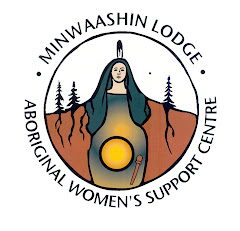Objectives Of The Youth Leadership Pilot Training Program:
1. To provide experiential learning for Aboriginal youth in the areas of communication (with a special focus on using the expressive arts to communicate a message), leadership skills and styles, conflict resolution, decision making, time management, and action/work planning.
2. To give Aboriginal youth an opportunity to experience their own capacity to achieve outcomes in the context of taking responsibility for urgent issues impacting their generation.
3. To empower Aboriginal youth by giving them opportunities to develop their positive attributes, enabling them to be self-confident and creative thinkers, planners and doers for the good of their communities.
4. To empower Aboriginal youth to pass their skills and values onto others by working collaboratively on a shared vision for violence prevention.
5. To promote a collaborative, non-abusive, gender-equality ethic among Aboriginal youth that includes serving as champions for healthy equal relationships.
Section 1: Day 1 (Specific Learning Objectives to be Developed)
1. Learning about each other: introductory/ice-breaker skits, story telling.
2. Youth Leadership Programs: YOUCAN rep Love You Give, etc examples of what youth have done and the characteristics and skills that made it possible.
3. Youth Leadership Skills: developing our own checklist of characteristics and skills of youth leaders.
4. Team Building Skills; how to become a learning team for 5-days.
5. Traditional teachings about the cycle of youth on the medicine wheel (male/female Elder do these teachings).
6. What are the strengths of youth in our communities? (Programs, mentors, resources, champions are there already that can help us out?)
Section 2: Day 2 (Specific Learning Objectives to be Developed)
1. Youth Taking Leadership to Stop the Cycle of Violence.
2. What is a ‘healthy’ relationship?
3. What is an unhealthy relationship?
4. What do we see in our communities about relationships that concern us?
5. What do we see in our communities that gives us hope?
6. Generating Ideas: How can youth take action on this issue in our community?
Section 3: Day 3 (Specific Learning Objectives to be Developed)
1. Creativity and Learning – the power of the performance arts to address social issues.
2. Performances: Slam Poetry; Theatre; Rap/Hip Hop; Posters; Dance/Choreography,
3. Videography
4. Fusing our traditional teachings with contemporary performance art.
Section 4: Day 4 (Specific Learning Objectives to be Developed)
1. Project Management Skills
2. Components of an Education/Prevention Project that address what we see in our communities and builds on our strengths?
3. Gathering Phase: who can help us and share their resources with us as well as help us get buy-in from our community and make sure our project gets off the ground? (Refer back to the material generated on Day I)
4. Design and development phase: what might we want to do? Things to consider: what language, what type of artistic medium, what format (sound, audio/visual, print?)
5. Getting our product out there: ideas for performance art or other forms of communication.
6. Mass production – how/who will produce it; how much will it cost?
7. Distribution: website?
Section 5: Day 5 half day (Specific Learning Objectives to be Developed)
1. Creating a workplan based on specific activities, timelines and costs.
2. Condensing our vision and hopes into a practical, achievable plan that fits with our community and our resources.
3. Graduation with Youth Leader certificate and Feast/Performances.










